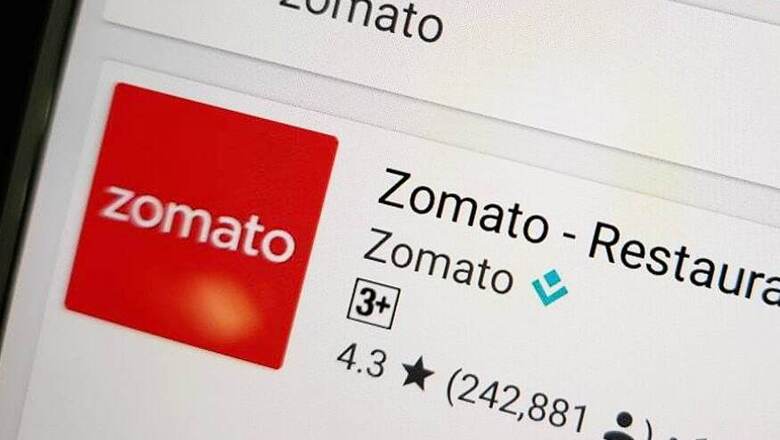
views
Online food delivery and restaurant discovery platform Zomato on Tuesday announced the acquisition of Uber’s food delivery business in India, Uber Eats, in an all-stock deal. The two companies did not disclose the deal size, but various reports pegged at about $300-350 million.
Apart from UberEats, Zomato has acquired 13 startups over a period of time -- Gastronauci (2014), MenuMania (2014), Lunchtime (2014), Obedovat (2014), Cibando (2014), Mekanist (2015), MapleGraph Solutions (2015), NexTable (2015), Urbanspoon (2015) Sparse Labs (2016), Runnr (2017), TongueStun Food (2018) and TechEagle Innovations (2018). Here’s a look at the five key acquisitions made by Zomato in the past that helped in major expansion of its business:
1. Runnr: In 2017, Zomato acquired Bengaluru-based delivery startup Runnr for an estimated $20 million. Runnr was a product of the merger of online food delivery startup TinyOwl and Roadrunnr. Runnr’s acquisition helped bolster Zomato’s delivery capabilities by building a captive fleet of delivery personnel.
2. TongueStun Food: In 2018, Zomato acquired Bengaluru-based food e-marketplace TongueStun Food for about $18 million. At the time of acquisition, TongueStun Food catered to 1,500+ companies including a number of large organizations like IBM, Accenture, E&Y, Sony, Genpact, 3M, Mindtree and Deloitte.
3. TechEagle Innovations: In 2018, Zomato acquired Lucknow-based drone startup TechEagle Innovations for an undisclosed sum. TechEagle was founded in 2015 by an IIT-Kanpur student with a focus on custom-made drones capable of carrying up to 5 kg payload. TechEagle was expected to help Zomato create a hub-to-hub delivery network powered by hybrid multi-rotor drones.
4. Urbanspoon: In 2015, Zomato made its biggest purchase till then by acquiring restaurant search guide Urbanspoon for $52 million. The acquisition marked Zomato’s entry into the US.
5. MenuMania: In 2014, Zomato made its first ever acquisition by buying out Menumania.co.nz, a popular New Zealand-based restaurant discovery service, for an undisclosed amount. It was significant not only because it was the company’s first step to boost growth through inorganic route but also because it strategically established Zomato’s presence in the Pacific.




















Comments
0 comment